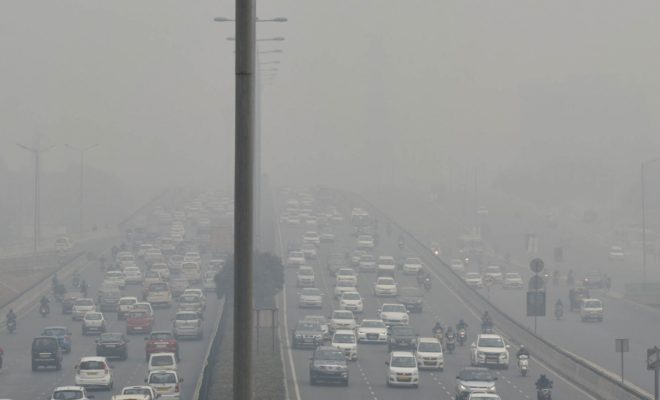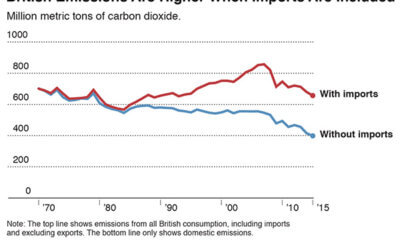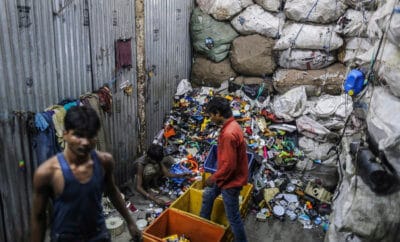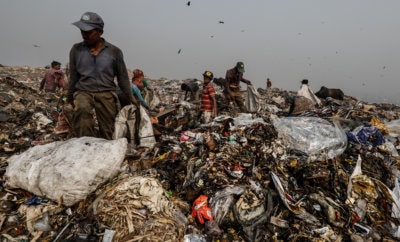Health
South Asia’s Children at Risk: Pollution Affects Brain Development, Says UNICEF

Gurugram: Dense smog covers Delhi-Gurugram Expressway in Gurugram on Dec 5, 2017.
IANS
Some particles in the air can cause neurodegenerative diseases while others can damage brain areas for learning and development, according to the report.
At least 12.20 million infants in South Asia live in areas that are the worst affected by air pollution, which can potentially risk their brain development, according to a new paper released by the United Nations Children’s Fund (UNICEF). About 17 million babies live in areas around the world where air pollution is at least six times higher than international limits, according to the report released on Dec. 5.
Delhi and parts of Pakistan have faced extreme levels of air pollution.
Some particles in air, the report said, can cause neurodegenerative diseases while others can damage brain areas for learning and development. They are so fine that they can enter the bloodstream, travel to the brain, and damage the blood-brain barrier, which can cause neuro-inflammation.
With damage to brain tissue, the cognitive development of children is affected. Apart from the brain damage, the onset of respiratory diseases and lung damage is already well documented.
“Not only do pollutants harm babies’ developing lungs – they can permanently damage their developing brains – and, thus, their futures,” UNICEF Executive Director Anthony Lake said. “Protecting children from air pollution not only benefits children. It also benefits their societies – realized in reduced healthcare costs, increased productivity and a safer, cleaner environment for everyone.”
Good air quality is as important as adequate nutrition, and stimulation is important in the first 1,000 days of life for the child’s growth, the report “Danger in the Air” said.
Parents can prevent damage by not exposing children to harmful fumes produced by tobacco products, cooking stoves and heating fires at home. Broader suggestions made about “smart urban planning” included absence of coal-plants near schools, clinics, hospitals or anywhere where they can cause harm to children.
The report also recommended that countries invest in cleaner energy and replace fossil fuel, provide affordable access to public transport, increase green spaces in urban areas, and provide better waste management options to prevent open burning of harmful chemicals.
Other measures that parents can take is to travel during lower air pollution times, and wear air masks. Breastfeeding and good nutrition to improve the immunity would also contribute towards healthier future for children.
“No child should have to breathe dangerously polluted air – and no society can afford to ignore air pollution,” Lake said.
New Delhi has been facing extreme levels of pollution due to various factors like crop-burning in neighboring states, increased vehicular traffic, and industries around the city. In November, with the onset of winter, pollution has been affecting people to a worrying level, with doctors recommending that residents in New Delhi, especially older people, and those with heart and respiratory ailments, should restrict time outside as well as physical activity.



